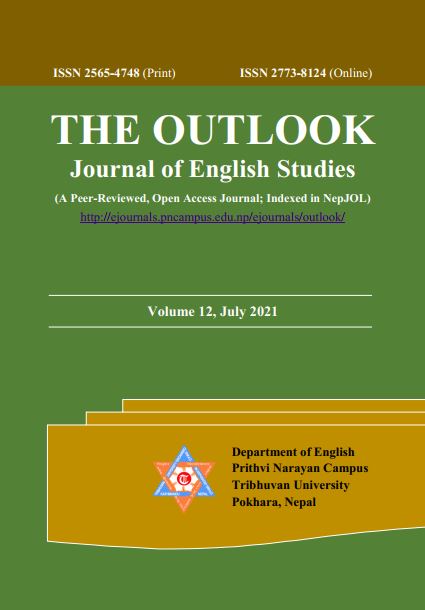Religion and Patriarchy in Taslima Nasrin’s Lajja: An Intersectional Approach
DOI:
https://doi.org/10.3126/ojes.v12i1.38750Keywords:
Discrimination, fanaticism, intersectionality, patriarchy, subjugationAbstract
This paper explores Taslima Nasrin’s novel Lajja from the perspective of intersectionality through the portrayal of female characters as religion and patriarchy have subjugated them in Bangladesh. Intersectionality crystalizes the dynamics of female issues regarding the tutelage that society and other institutions create for them. In the novel, the author tries to reflect these issues of intersectionalty regarding freedom of expression for both women and people in minorities and the problem of identity crises they suffer. Likewise, the religious as well as political conflicts impede the minorities group to feel liberate and find their identity. The reason behind this can be justified because the novel was banned and a fatwa was issued against Nasrin. Mainly, the focus is on how the religious and social confinements for the women and people from marginalized group made their voices unheard. This situation makes women rebel against male chauvinism and religious fanatics. As a qualitative review article, it reviews some articles relevant to Nasrin and her novel as secondary sources, her novel as primary source applying an intersectional approach, through the study of feminism and religious fanaticism as methodological tools.
Downloads
Downloads
Published
How to Cite
Issue
Section
License
Copyright (c) 2021 Department of English, Prithvi Narayan Campus

This work is licensed under a Creative Commons Attribution-NonCommercial 4.0 International License.
This license enables reusers to distribute, remix, adapt, and build upon the material in any medium or format for noncommercial purposes only, and only so long as attribution is given to the creator.

